The American Canon: Literary Genius from Emerson to Pynchon 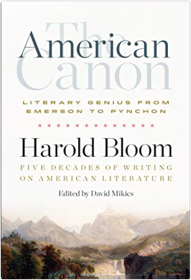 Harold Bloom is our greatest living student of literature, "a colossus among critics" (The New York Times) and a "master entertainer" (Newsweek). Over the course of a remarkable career spanning more than half a century, in such best-selling books as The Western Canon and Shakespeare: The Invention of the Human, he transformed the way we look at the masterworks of western literature. Now, in the first collection devoted to his illuminating writings specifically on American literature, Bloom reflects on the surprising ways American writers have influenced each other across more than two centuries. The American Canon gathers five decades of Bloom's essays, occasional pieces, and introductions as well as excerpts from several of his books, weaving them together into an unrivalled tour of the great American bookshelf. Always a champion of aesthetic power, Bloom tells the story of our national literature in terms of artistic struggle against powerful predecessors and the American thirst for selfhood. All of the visionary American writers who have long preoccupied Bloom—Emerson and Whitman, Hawthorne and Melville, and Dickinson, Faulkner, Crane, Frost, Stevens, and Bishop—are here, along with Hemingway, James, O'Connor, Ellison, Hurston, LeGuin, Ashbery and many others. Bloom's enthusiasm for these American geniuses is contagious, and he reminds us how these writers have shaped our sense of who we are, and how they can summon us to be yet better versions of ourselves. The American Religion: The Emergence of The Post-Christian Nation 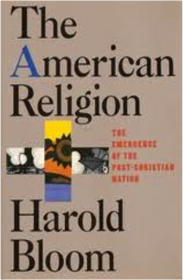 American Religious Poems: An Anthology by Harold Bloom 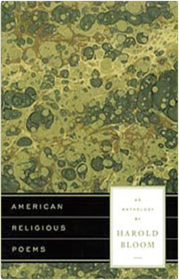 Spanning four centuries and more than 200 poets, American Religious Poems is a bountiful and moving gathering of voices that offers countless moments of inspiration, solace, meditation, and transcendence. The poems in this unprecedented volume are a lasting testimony to the American spirit and its unremitting quest for ultimate truth and meaning. This deluxe collector's edition features: - an introduction by Harold Bloom - a reader's guide to significant topics and themes in the poems - Smyth-sewn binding and flexible, leatherette covers - and a ribbon page-marker The Anatomy of Influence: Literature as a Way of Life 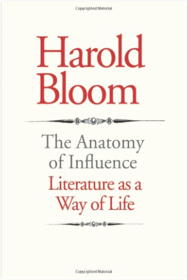 For more than half a century, Bloom has shared his profound knowledge of the written word with students and readers. In this, his most comprehensive and accessible study of influence, Bloom leads us through the labyrinthine paths which link the writers and critics who have informed and inspired him for so many years. The result is "a critical self-portrait," a sustained meditation on a life lived with and through the great works of the Western canon: Why has influence been my lifelong obsessive concern? Why have certain writers found me and not others? What is the end of a literary life? Featuring extended analyses of Bloom's most cherished poets—Shakespeare, Whitman, and Crane—as well as inspired appreciations of Emerson, Tennyson, Browning, Yeats, Ashbery, and others, The Anatomy of Influence adapts Bloom's classic work The Anxiety of Influence to show us what great literature is, how it comes to be, and why it matters. Each chapter maps startling new literary connections that suddenly seem inevitable once Bloom has shown us how to listen and to read. A fierce and intimate appreciation of the art of literature on a scale that the author will not again attempt, The Anatomy of Influence follows the sublime works it studies, inspiring the reader with a sense of something ever more about to be. Anthony Burgess 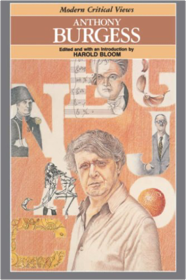 The Anxiety of Influence: A Theory of Poetry 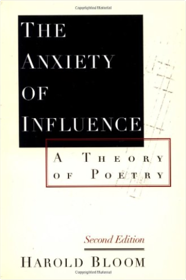 This second edition contains a new Introduction, which explains the genesis of Bloom's thinking and the subsequent influence of the book on literary criticism of the past twenty years.criticism of the past twenty years. Here, Bloom asserts that the anxiety of influence comes out of a complex act of strong misreading, a creative interpretation he calls "poetic misprision." The influence-anxiety does not so much concern the forerunner but rather is an anxiety achieved in and by the story, novel, play, poem, or essay. In other words, without Keats's reading of Shakespeare, Milton, and Wordsworth, we could not have Keats's odes and sonnets and his two Hyperions. Given the enormous attention generated by Bloom's controversial The Western Cannon, this new edition is certain to find a readymade audience among the new generation of scholars, students, and layreaders interested in the Bloom cannon. The Art of Reading Poetry 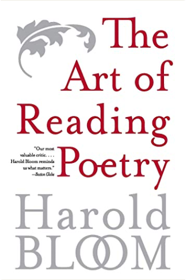 The Book of J 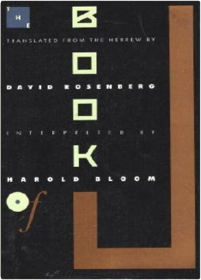 Cleopatra: I Am Fire and Air 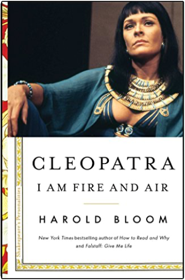 Cleopatra is one of the most famous women in history—and thanks to Shakespeare, one of the most intriguing personalities in literature. She is lover of Marc Antony, defender of Egypt, and, perhaps most enduringly, a champion of life. Cleopatra is supremely vexing, tragic, and complex. She has fascinated readers and audiences for centuries and has been played by the greatest actresses of their time, from Elizabeth Taylor to Vivien Leigh to Janet Suzman to Judi Dench. Award-winning writer and beloved professor Harold Bloom writes about Cleopatra with wisdom, joy, exuberance, and compassion. He also explores his own personal relationship to the character: Just as we encounter one Anna Karenina or Jay Gatsby when we are in high school and college and another when we are adults, Bloom explains his shifting understanding of Cleopatra over the course of his own lifetime. The book becomes an extraordinarily moving argument for literature as a path to and a measure of our own humanity. Bloom is mesmerizing in the classroom, wrestling with the often tragic choices Shakespeare’s characters make. With Cleopatra, he delivers exhilarating clarity and invites us to look at this character as a flawed human who might be living in our world. The result is an invaluable resource from our greatest literary critic. The Daemon Knows: Literary Greatness and the American Sublime  Pairing Walt Whitman with Herman Melville, Ralph Waldo Emerson with Emily Dickinson, Nathaniel Hawthorne with Henry James, Mark Twain with Robert Frost, Wallace Stevens with T. S. Eliot, and William Faulkner with Hart Crane, Bloom places these writers’ works in conversation with one another, exploring their relationship to the “daemon”—the spark of genius or Orphic muse—in their creation and helping us understand their writing with new immediacy and relevance. It is the intensity of their preoccupation with the sublime, Bloom proposes, that distinguishes these American writers from their European predecessors. As he reflects on a lifetime lived among the works explored in this book, Bloom has himself, in this magnificent achievement, created a work touched by the daemon. Praise for Harold Bloom and The Daemon Knows “The sublime The Daemon Knows is a veritable feast for the general reader (me) as well as the advanced (I assume) one.”—John Ashbery “[Bloom] is, by any reckoning, one of the most stimulating literary presences of the last half-century.”—Sam Tanenhaus, The New York Times Book Review “As always, Bloom conveys the intimate, urgent, compelling sense of why it matters that we read these canonical authors.”—Kirkus Reviews (starred review) “Bloom thinks in the sweep of millennia, of intellectual patterns that unfold over centuries, of a vast and intricate labyrinth of interconnections between artists from Plato to Pater.”—Michael Lindgren, The Washington Post “A colossus among critics.”—Adam Begley, The New York Times Magazine “Probably the most celebrated literary critic in the United States.”—Frank Kermode, The Guardian Fallen Angels  Every angel is terrifying, Rilke wrote. For Bloom, too, this is true in one sense, since he maintains that all angels are fallen angels. The image of Satan, the greatest of fallen angels, retains the ability to fascinate and frighten us, he argues, because we share a close kinship with him. Indeed, from a human perspective, we must agree that we are fallen angels. Fallenness is ultimately a human condition: the recognition of our own mortality. Throughout world literature angels have always served as metaphors for death. We may take consolation, however, in our double awareness that angels also represent love and the celebration of human possibilities. Falstaff: Give Me Life 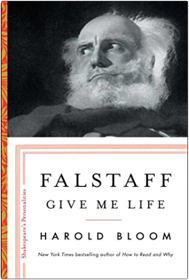 Falstaff is both a comic and tragic central protagonist in Shakespeare’s three Henry plays: Henry IV, Parts One and Two, and Henry V. He is companion to Prince Hal (the future Henry V), who loves him, goads, him, teases him, indulges his vast appetites, and commits all sorts of mischief with him—some innocent, some cruel. Falstaff can be lewd, funny, careless of others, a bad creditor, an unreliable friend, and in the end, devastatingly reckless in his presumption of loyalty from the new King. Award-winning author and beloved professor Harold Bloom writes about Falstaff with the deepest compassion and sympathy and also with unerring wisdom. He uses the relationship between Falstaff and Hal to explore the devastation of severed bonds and the heartbreak of betrayal. Just as we encounter one type of Anna Karenina or Jay Gatsby when we are young adults and another when we are middle-aged, Bloom writes about his own shifting understanding of Falstaff over the course of his lifetime. Ultimately we come away with a deeper appreciation of this profoundly complex character, and the book as a whole becomes an extraordinarily moving argument for literature as a path to and a measure of our humanity. Bloom is mesmerizing in the classroom, wrestling with the often tragic choices Shakespeare’s characters make. He delivers that kind of exhilarating intimacy and clarity in Falstaff, inviting us to look at a character as a flawed human who might live in our world. The result is deeply intimate and utterly compelling. The Flight to Lucifer: A Gnostic Fantasy 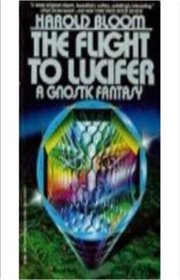 Genius: a Mosaic of One Hundred Exemplary Creative Minds 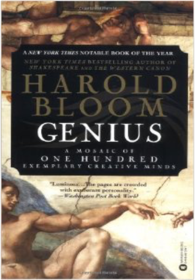 How to Read and Why 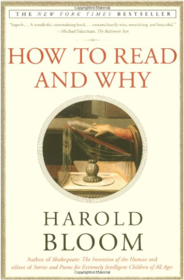 Shedding all polemic, Bloom addresses the solitary reader, who, he urges, should read for the purest of all reasons: to discover and augment the self. His ultimate faith in the restorative power of literature resonates on every page of this infinitely rewarding and important book. Iago: The Strategies of Evil 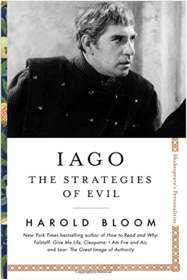 In all of literature, few antagonists have displayed the ruthless cunning and unscrupulous deceit of Iago, the antagonist to Othello. Often described as Machiavellian, Iago is a fascinating psychological specimen: at once a shrewd expert of the human mind and yet, himself a deeply troubled man. One of Shakespeare’s most provocative and culturally relevant plays, Othello is widely studied for its complex and enduring themes of race and racism, love, trust, betrayal, and repentance. It remains widely performed across professional and community theatre alike and has been the source for many film and literary adaptations. Now award-winning writer and beloved professor Harold Bloom investigates Iago’s motives and unthinkable actions with razor-sharp insight, agility, and compassion. Why and how does Iago uses fake news to destroy Othello and several other characters in his path? What can Othello tell us about racism? Bloom is mesmerizing in the classroom, treating Shakespeare’s characters like people he has known all his life. He delivers that kind of exhilarating intimacy and clarity in these pages, writing about his shifting understanding—over the course of his own lifetime—of this endlessly compelling figure, so that Iago also becomes an extraordinarily moving argument for literature as a path to and a measure of our humanity. This is a provocative study for our time. Jesus and Yahweh: The Names Divine 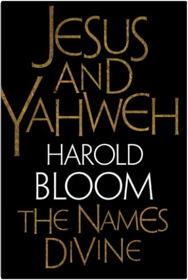 There is very little evidence of the historical Jesus-who he was, what he said. As Bloom writes, "There is not a sentence concerning Jesus in the entire New Testament composed by anyone who ever had met the unwilling King of the Jews." And so Bloom has used his unsurpassed skills as a literary critic to examine the character of Jesus, noting the inconsistencies, contradictions, and logical flaws throughout the Gospels. He also examines the character of Yahweh, who he finds has more in common with Mark's Jesus than he does with God the Father of the Christian and later rabbinic Jewish traditions. Bloom further argues that the Hebrew Bible of the Jews and the Christian Old Testament are very different books with very different purposes, political as well as religious. Jesus and Yahweh is a thrilling and mind-opening read. It is paradigm-changing literary criticism that will challenge and illuminate Jews and Christians alike, and is sure to be one of the most discussed, debated, and celebrated books of the year. At a time when religion has come to take center stage in our political arena, Bloom's shocking conclusion, that there is no Judeo-Christian tradition-that the two histories, Gods, and even Bibles, are not compatible-may make readers rethink everything we take for granted about what we believed was a shared heritage. Kabbalah And Criticism (Continuum Impacts)  Lear: The Great Image of Authority 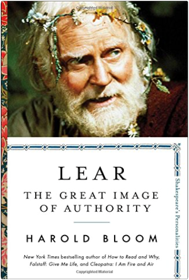 King Lear is perhaps the most poignant character in literature. The aged, abused monarch—a man in his eighties, like Harold Bloom himself—is at once the consummate figure of authority and the classic example of the fall from majesty. He is widely agreed to be William Shakespeare’s most moving, tragic hero. Award-winning writer and beloved professor Harold Bloom writes about Lear with wisdom, joy, exuberance, and compassion. He also explores his own personal relationship to the character: Just as we encounter one Emma Bovary or Hamlet when we are seventeen and another when we are forty, Bloom writes about his shifting understanding—over the course of his own lifetime—of Lear, so that this book also explores an extraordinarily moving argument for literature as a path to and a measure of our humanity. Bloom is mesmerizing in the classroom, wrestling with the often tragic choices Shakespeare’s characters make. He delivers that kind of exhilarating intimacy, pathos, and clarity in Lear. Macbeth: A Dagger of the Mind 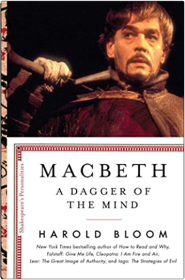 From the ambitious and mad titular character to his devilish wife Lady Macbeth to the moral and noble Banquo to the mysterious Three Witches, Macbeth is one of William Shakespeare’s more brilliantly populated plays and remains among the most widely read, performed in innovative productions set in a vast array of times and locations, from Nazi Germany to Revolutionary Cuba. Macbeth is a distinguished warrior hero, who over the course of the play, transforms into a brutal, murderous villain and pays an extraordinary price for committing an evil act. A man consumed with ambition and self-doubt, Macbeth is one of Shakespeare’s most vital meditations on the dangerous corners of the human imagination. Award-winning writer and beloved professor Harold Bloom investigates Macbeth’s interiority and unthinkable actions with razor-sharp insight, agility, and compassion. He also explores his own personal relationship to the character: Just as we encounter one Anna Karenina or Jay Gatsby when we are seventeen and another when we are forty, Bloom writes about his shifting understanding—over the course of his own lifetime—of this endlessly compelling figure, so that the book also becomes an extraordinarily moving argument for literature as a path to and a measure of our humanity. Bloom is mesmerizing in the classroom, wrestling with the often tragic choices Shakespeare’s characters make. He delivers that kind of exhilarating intimacy and clarity in Macbeth, the final book in an essential series. A Map of Misreading 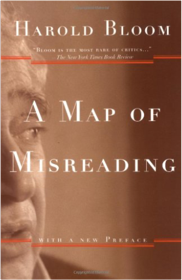 For the first time, in a new preface, Bloom will consider the map of misreading drawn by contemporary poets such as Ann Carson and Henri Cole. Bloom's new exploration of contemporary poetry over the last twenty years will illuminate how modern texts relate to previous texts, and contribute to the literary legacy of their predecessors. Novelists and Novels 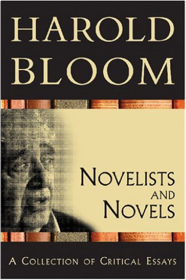 Omens of the Millennium: The Gnosis of Angels, Dreams, and Resurrection 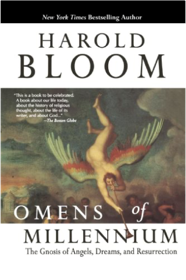 Poetics of Influence 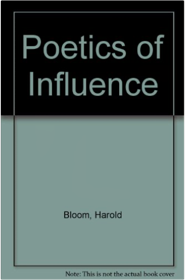 Possessed by Memory: The Inward Light of Criticism 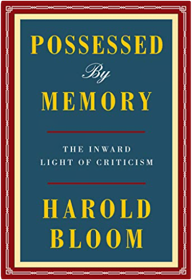 Gone are the polemics. Here, instead, in a memoir of sorts—an inward journey from childhood to ninety—Bloom argues elegiacally with nobody but Bloom, interested only in the influence of the mind upon itself when it absorbs the highest and most enduring imaginative literature. He offers more than eighty meditations on poems and prose that have haunted him since childhood and which he has possessed by memory: from the Psalms and Ecclesiastes to Shakespeare and Dr. Johnson; Spenser and Milton to Wordsworth and Keats; Whitman and Browning to Joyce and Proust; Tolstoy and Yeats to Delmore Schwartz and Amy Clampitt; Blake to Wallace Stevens—and so much more. And though he has written before about some of these authors, these exegeses, written in the winter of his life, are movingly informed by "the freshness of last things." As Bloom writes movingly: "One of my concerns throughout Possessed by Memory is with the beloved dead. Most of my good friends in my generation have departed. Their voices are still in my ears. I find that they are woven into what I read. I listen not only for their voices but also for the voice I heard before the world was made. My other concern is religious, in the widest sense. For me poetry and spirituality fuse as a single entity. All my long life I have sought to isolate poetic knowledge. This also involves a knowledge of God and gods. I see imaginative literature as a kind of theurgy in which the divine is summoned, maintained, and augmented." Romanticism and Consciousness: Essays in Criticism 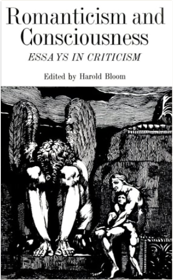 The Shadow of a Great Rock: A Literary Appreciation of the King James Bible 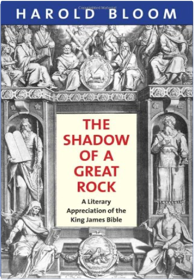 Bloom calls it an "inexplicable wonder" that a rather undistinguished group of writers could bring forth such a magnificent work of literature, and he credits William Tyndale as their fountainhead. Reading the King James Bible alongside Tyndale's Bible, the Geneva Bible, and the original Hebrew and Greek texts, Bloom highlights how the translators and editors improved upon—or, in some cases, diminished—the earlier versions. He invites readers to hear the baroque inventiveness in such sublime books as the Song of Songs, Ecclesiastes, and Job, and alerts us to the echoes of the King James Bible in works from the Romantic period to the present day. Throughout, Bloom makes an impassioned and convincing case for reading the King James Bible as literature, free from dogma and with an appreciation of its enduring aesthetic value. (20110523) Shakespeare: The Invention of the Human  Stories and Poems for Extremely Intelligent Children of All Ages 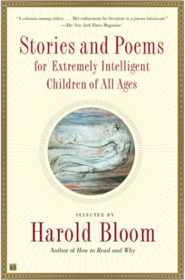 Here are old favorites by beloved writers of children's literature, as well as exciting rediscoveries and wonderful works penned by writers better known for their adult classics, such as Herman Melville, Leo Tolstoy, Edith Wharton, and Walt Whitman. Encompassing the natural world and the supernatural; childhood, romance, and death; pets, wild animals, and goblins; mystery, adventure, and humor; the selections reflect the passion and erudition of our most revered literary critic. Arranged by season, Stories and Poems for Extremely Intelligent Children of All Ages is a must-have anthology, sure to delight readers young and old for years to come. Take Arms Against a Sea of Troubles: The Power of the Reader’s Mind over a Universe of Death 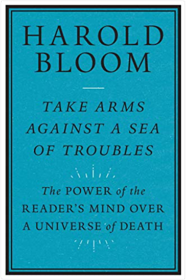 The Best Poems of the English Language : From Chaucer Through Frost 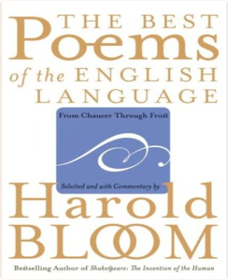 Till I End My Song: A Gathering of Last Poems 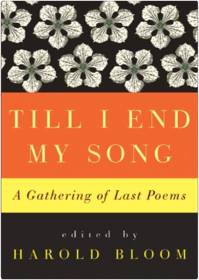 The Visionary Company: A Reading of English Romantic Poetry 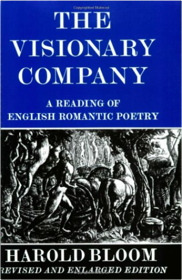 Wallace Stevens: The Poems of Our Climate 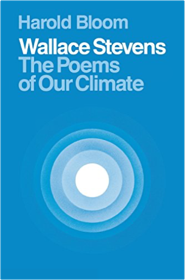 Where Shall Wisdom Be Found? 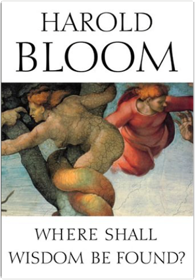 For anyone who reads to find meaning, Bloom's new book will not only further understanding but also send readers with renewed enthusiasm and urgency back to the pages of the writers who have contributed most to our sense of who we are. It is a profound and illuminating work that itself is certain to become part of our literary canon. William Faulkner's the Sound and the Fury 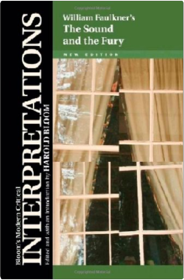 They're today's most popular study guides-with everything you need to succeed in school. Written by Harvard students for students, since its inception "SparkNotes(TM) has developed a loyal community of dedicated users and become a major education brand. Consumer demand has been so strong that the guides have expanded to over 150 titles. "SparkNotes'(TM) motto is "Smarter, Better, Faster because: - They feature the most current ideas and themes, written by experts. - They're easier to understand, because the same people who use them have also written them. - The clear writing style and edited content enables students to read through the material quickly, saving valuable time. And with everything covered—context; plot overview; character lists; themes, motifs, and symbols; summary and analysis, key facts; study questions and essay topics; and reviews and resources—you don't have to go anywhere else! |


Delicious Library
Collection Total:
3,640 Items
3,640 Items
Last Updated:
Nov 2, 2025
Nov 2, 2025


 Made with Delicious Library
Made with Delicious Library